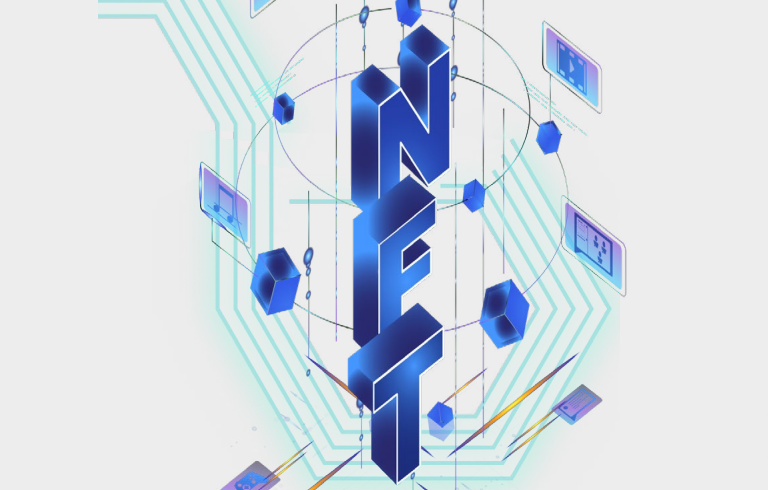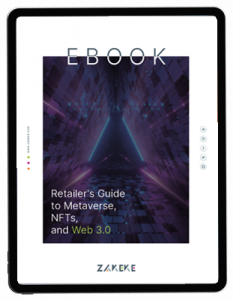Today we look at what NFTs can really offer your brand with lessons learned from real-world examples.
Non-fungible tokens (NFTs) may be viewed as the newest tool that demonstrates how value and currency as concepts are evolving through the digital age. Many companies are already taking notice, have already experimented with NFTs, and are now securing their positions as frontrunner brands in the process. Coca Cola, Nike, Gucci, Ray-Ban and numerous other recognizable brands are creating NFTs in a variety of collectable formats to create exclusivity as well as broad exposure for their designs and products. Many of these items appear in the metaverse where they are viewed in 3D and AR in virtual stores and on virtual runways.
For companies wanting to get an idea of what an NFT is and how it can be used to drive brand value, we must first establish what value is to a brand and then connect those values to key economic principles and the technology behind NFTs.
eCommerce Brand Value
Marketing and Brand executives often talk about value in the context of how brands contribute to the success of a business: brand awareness, reach, market share, customer experience, customer loyalty, and other KPIs. Value is one of the few things we encounter that always exists in both a conceptual and actual state. Understanding value practically and conceptually will be integral for exploring and understanding the world of NFTs.
For our discussion we will keep things simple and define value refers as the price that someone is willing to pay for a thing. What makes assigning value to a thing both challenging and interesting is that it is always possible for two parties to have very different or diverging opinions on a given value. Asking a variety of people or entities what something is worth could yield you a handful to hundreds of thousands of different answers, all informed by how the given party assesses disparate information.
NFTs as an ecommerce asset.
For those who may be new to NFTs, an NFT is a unique digital asset that has its ownership details tracked on a blockchain. This can be a broad set of assets that includes digital goods, such as virtual apparel or digital art, or tangible assets, such as physical apparel and art. As NFTs are a way to allow people to make and own digital files (e.g., MP3, MP4, gifs, jpegs, etc.), they open unlimited possibility to new channels for brand expression and points of connection with customers.
Determining whether NFTs are right for your business will take thought, time and research, however, the upside of NFTs is access to an existing globally distributed network of customers which will continue to grow over time especially as new applications are discovered and virtual experiences proliferate. Here are a few suggestions as to how to make good use of NFTs.
Adapt and exploit changes of value.
One potential source of NFT value is the current direct-to-consumer state in which NFTs exist. Given the mechanics of how the technology functions, visibility into the ownership and uses of assets is available for all to see. Companies have frictionless interactions with consumers as a result and they have near perfect visibility into how their outputs are being valued and used by end consumers whenever an item is bought or sold.
NFTs offer fractional ownership of items and assets which opens up new possibilities for brands. Brands can take lessons from artistic experimentation in NFTs. For example, the ability to purchase an excerpt from a song, a portion of an image, or part of any other digital asset opens the door to increasing the volume of participants in each market. Prior to NFTs, centralized transactions and ownership have primarily benefited the ultra-rich. NFTs are decentralized assets available to anyone with stable internet and disposable income to transact.
Make a strong visual connection between NFTs and your brand’s mission.
A clear example is Nike’s use of NFTs to certify the veracity of each pair of sneakers. When Nike customers buy a shoe, a digital version of the product appears in a ‘virtual locker’ under an initiative called CryptoKicks. Given the “sneaker head” subculture that exists around collecting, trading and reselling sneakers, incorporating a digital seal of authenticity to the physical counterpart of the token takes these practices to the next level, and is aligned with their brand’s purpose of delivering highly desirable products and services that Nike customers love.
3D and AR visualization tools have been used to enhance value in today’s Ecommerce experiences and NFTs take that experience to a new level. Working with a high quality product visualization service will pay dividends for your effort.
On the other hand, releasing NFTs that are misaligned with your brand’s purpose can be a risk so be thoughtful with your use of the technology.
Be bold and get creative with your brand.
The possibilities for NFTs to enhance your brand strategy are limitless, and your desire for creative expression in this space should be just as limitless. One strategy for NFTs is minting a digital collectible tied to a physical item in your portfolio that can be used for gaming or online forums as you may have seen already from major brands who are already in this space.
The potential for NFT brand opportunities goes beyond the realm of the collectible to unlocking enhanced customer experiences. Across all industries, NFTs offer new avenues for rewards systems that enhance brand loyalty. In the worlds of sports and music, NFTs are already being used to build communities of devoted fans and offer exclusive access to their favorite athletes and musicians.
Asset management agencies provide end-to-end creation and management services and even marketplaces for collateralized loans as exemplified by a variety of fintech firms.
As companies explore digital assets and ramp up their marketing and product teams to deliver, they will be flooded with a great variety of narrowly focused use cases as wells high prices brought about by the hype that often distracts from the technology. NFTs may be novel, digital and something that many people will not have encountered in their day-to-day lives so there is only a limited amount of information that can be gleaned from market prices of NFTs.
Instead, go for a meaningful and sustained focus on understanding the NFTs’ economic value to your service and approach it with natural levels of skepticism as you would when assessing any new technology. Explore the economic, behavioral, and even psychological principles as tools for engaging and evaluating the applicability of NFTs for your business.
As with traditional art, NFTs’ cultural significance, financial accessibility and commercial viability will need to intensify over time to achieve staying power. Until then, use strategic experiments to determine whether NFTs are right for your business. At a minimum, the NFT marketplace can function as an additional revenue stream where companies can monetize intangible digital assets. At best, NFTs can serve as a launchpad for inventing new commercial norms, methods of ownership, and economic and market value practices.
The future of NFTs is being defined now and we will see whether NFTs become a currency of choice with universal accessibility, the latest form of digital artwork, or be regarded as an integral part of a brand’s product portfolio. No matter what, it will be your effort that determines what positive experiences and brand expressions NFTs unlock for your company and brand. Today is the day to participate and create this story.
Stay up to date and follow us on LinkedIn, Facebook and Instagram














